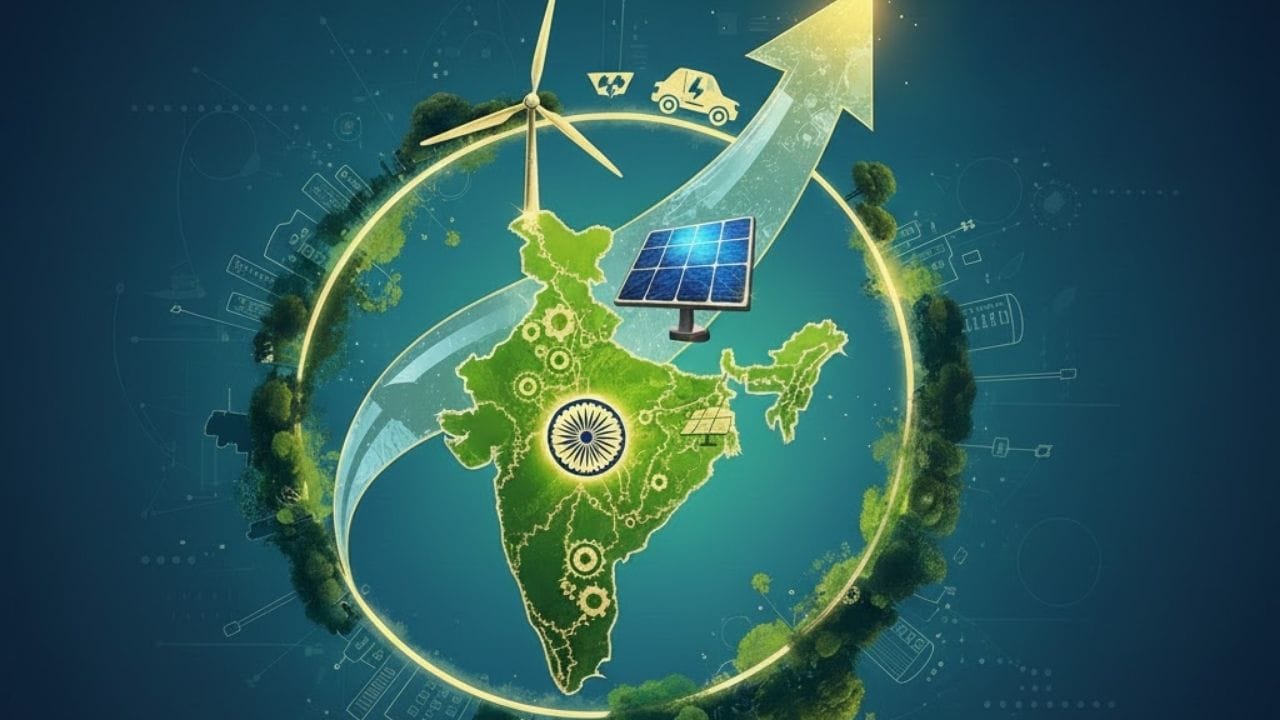‘Green economy’ will make ‘developed India’
A huge investment of 4.1 trillion dollars (about Rs 340 lakh crore) can come in India’s ‘Green Economy’ by 2047. This investment will also create 4.8 crore new employment opportunities. According to a study by the Council on Energy, Environment and Water (CEEW), this change can prove to be the biggest turning point in the path of making India a ‘developed India’. This green market could be worth $1.1 trillion annually by 2047.
Billions of rupees of wealth are hidden in these sectors
Often people think of green economy as limited only to solar energy or electric vehicles. But, the CEEW study has identified 36 unique green value chains that form the roadmap to 2047 for India. This opportunity spans energy transition, circular economy, bio-economy and nature-based solutions. Former Union Minister and Chairman of Everstone Group Jayant Sinha has clearly said that India’s green transition is purely positive. This will provide employment, faster growth and strengthen national security. He has emphasized on the use of instruments like “blended finance” to overcome land-related problems and reduce investment risks.
Where are the most jobs?
According to the study, electric mobility will emerge as the largest employer within the green economy. The energy transition (Renewables, Storage, Distributed Energy, and Clean Mobility Manufacturing) alone will generate 16.6 million FTE (full-time equivalent) jobs and $3.79 trillion in investment.
But the real gamechanger lies in rural and semi-urban India. Bio-economy and nature-based solutions together can create millions of jobs. These are included in the value chains that provide the maximum number of jobs in this segment.
- Chemical-free agriculture and bio-inputs: 72 lakh FTE jobs
- Agroforestry and sustainable forest management: 47 lakh FTE jobs
- Wetland Management: 37 lakh FTE jobs
Former G20 Sherpa and former CEO of NITI Aayog Amitabh Kant has said a very important thing. He believes that while growing from a $3 trillion economy, India cannot follow the development model of the West. We have a unique opportunity to design our cities, industries and supply chains around circular economy and clean energy from the ground up. This ‘pole vault’ jump will give us the strength to set a new benchmark for green growth in the world.
CEEW’s Abhishek Jain has called it ‘important’ for India. Today we import 87% of our crude oil needs, which can be reduced to zero with electric vehicles and bioethanol. 100% of imports of critical minerals like lithium, nickel, and cobalt can also be eliminated through circular economy. Even our heavy dependence on fertilizer imports can be ended with bio-inputs.
